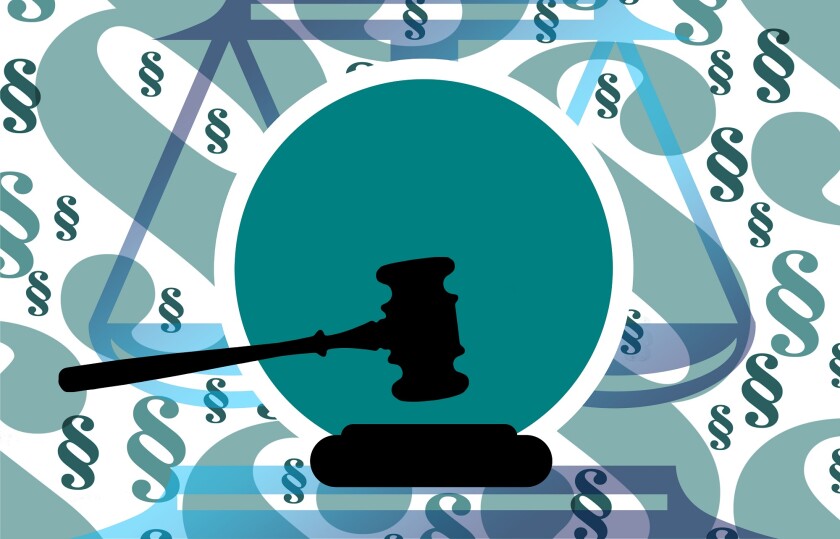On June 24 2022, Taiwan’s Judicial Yuan announced a draft amendment to the Intellectual Property Case Adjudication Act for review by the Legislative Yuan, which, if approved, will be the most sizable and influential overhaul since its implementation in 2008. The following is a summary.
Introduction of an adversarial system
According to the planning of the Judicial Yuan, the administrative remedy system for patent and trademark cases will change from an administrative litigation system to an adversarial system under quasi-civil litigation proceedings. In other words, after a party files an appeal with the court against a decision rendered by the Intellectual Property Office (the ‘IP Office’), the case will be tried in accordance with civil procedure. The defendant, depending on the type of case, may no longer be the IP Office but the opposing party; for example, an invalidation petitioner, or the applicant of a cancellation action.
More cases will be mandatorily represented by lawyers
The draft amendment states that only lawyers may provide representation in several types of IP civil matters. Basically, civil disputes relating to patents, software copyrights, and trade secrets will be mandatorily represented by lawyers. The same is true with other civil cases unless the value of the plaintiff’s claims is low.
The draft amendment has introduced good practices and appropriate rules that have been adopted by IP court judges for years, as follows, to augment the effectiveness of the trial of civil suits.
In principle, the court should discuss with the involved parties (through their lawyers) the planning of a trial, unless the case does not require legal representation or the issues are relatively simple.
In patent litigation cases, the judge will, in a timely and appropriate manner, disclose their interpretation of any disputed claim terms, ex officio or upon the request of a party.
The draft amendment also sets out some principles for long-standing unsettled issues or issues in grey areas in infringement litigation, including the following:
Under the current law, reports drafted by court experts formally known as technical examination officers (TEOs) are not disclosed to any parties. The draft amendment now makes it clear that when a judge deems it necessary, they may disclose all or part of the content of the reports drafted by TEOs and the parties may be given opportunities to debate.
In the event of an infringement of patent rights, software copyrights, or trade secrets, if the plaintiff has made a prima facie showing of infringement, the defendant should make a “concrete defence” and provide the facts and evidence regarding their “denial of infringement”. Under such principle, the burden of proof resting with the plaintiff may be more or less alleviated.
Furthermore, the Judicial Yuan has made a painstaking effort to reduce the duplication of lawsuits. For example, the draft amendment states that when an IP right upon which litigation is based has been exclusively licensed to a third party, and the litigation is initiated by the IP right holder, the exclusive licensee shall be notified in a timely fashion to ensure that they have opportunities to participate in the litigation and vice versa.
Amendments to claims during litigation
How a patent infringement lawsuit should be tried when the claims have been amended is a challenging procedural issue, especially when the amendment is conducted not in the lawsuit but in a parallel invalidation action. The draft amendment attempts to provide a comprehensive solution, including the following:
When the patentee/plaintiff has amended the patent claims before the IP Office (usually in a parallel invalidation action), they should make a report to the court. Otherwise, the patentee can only claim their right based on the claims of the patent before the amendment.
If a patentee has missed the opportunity to amend the claims at the IP Office (for example, the patent has been held invalid by the IP Office in a decision being appealed), the intended amendment can be identified in an infringement litigation, but only on the premise that “not allowing the amendment is manifestly unfair”. In this scenario, the judge may determine whether the amendment is legitimate or seek the IP Office’s opinion on the amendment. In the latter case, the IP Office may present its opinion in writing or by appointing an examiner to present before the court.
Restriction on the submission of new evidence
The current act has fewer restrictions on the submission of new evidence in invalidation/cancellation actions. According to the draft amendment, unless the patentee agrees, or has no objection, to the invalidation petitioner’s submission of new evidence, the invalidation petitioner may file new evidence only after the following two conditions have been satisfied:
The new evidence is to strengthen the “very same legal ground (e.g. lack of inventive step) on which the invalidation action is initiated”; and
The ‘new’ evidentiary materials have been presented before the court, and it is only to make a new combination or to split a combination of evidence into single pieces of evidence.
More experts are allowed to participate in litigation
By making reference to the Japanese Patent Act, the draft amendment mandates that the court may, upon request, designate a neutral technical expert to carry out the ‘verification’ task in evidence-gathering proceedings. In addition, not only has an expert witness system been introduced into the draft amendment with reference to US litigation practice, but the court can also publicly solicit, on its official website, written comments from the public on specific legal issues by virtue of the introduction of the amicus curiae system.
Trade secrets are protected in an elevated manner
The draft amendment states that the Intellectual Property and Commercial Court (the ‘IPC Court’) has exclusive jurisdiction over civil and criminal lawsuits relating to trade secrets infringement. If the criminal lawsuit relates to state-level key technologies, it should start from the appellate-instance IPC Court.
In addition, the draft amendment has introduced the offence of “breach of trade secret maintaining order abroad” to further protect trade secrets.
Victims are allowed to participate in trial procedures
According to the draft amendment, regardless of whether an IP right infringement lawsuit is governed by the IPC Court, the provisions of the Criminal Procedure Law on “victims’ participation in litigation” shall apply mutatis mutandis. By this token, victims can be voiced by prosecutors in the trial procedure, and enter the procedure themselves to express their opinions and review case files.












